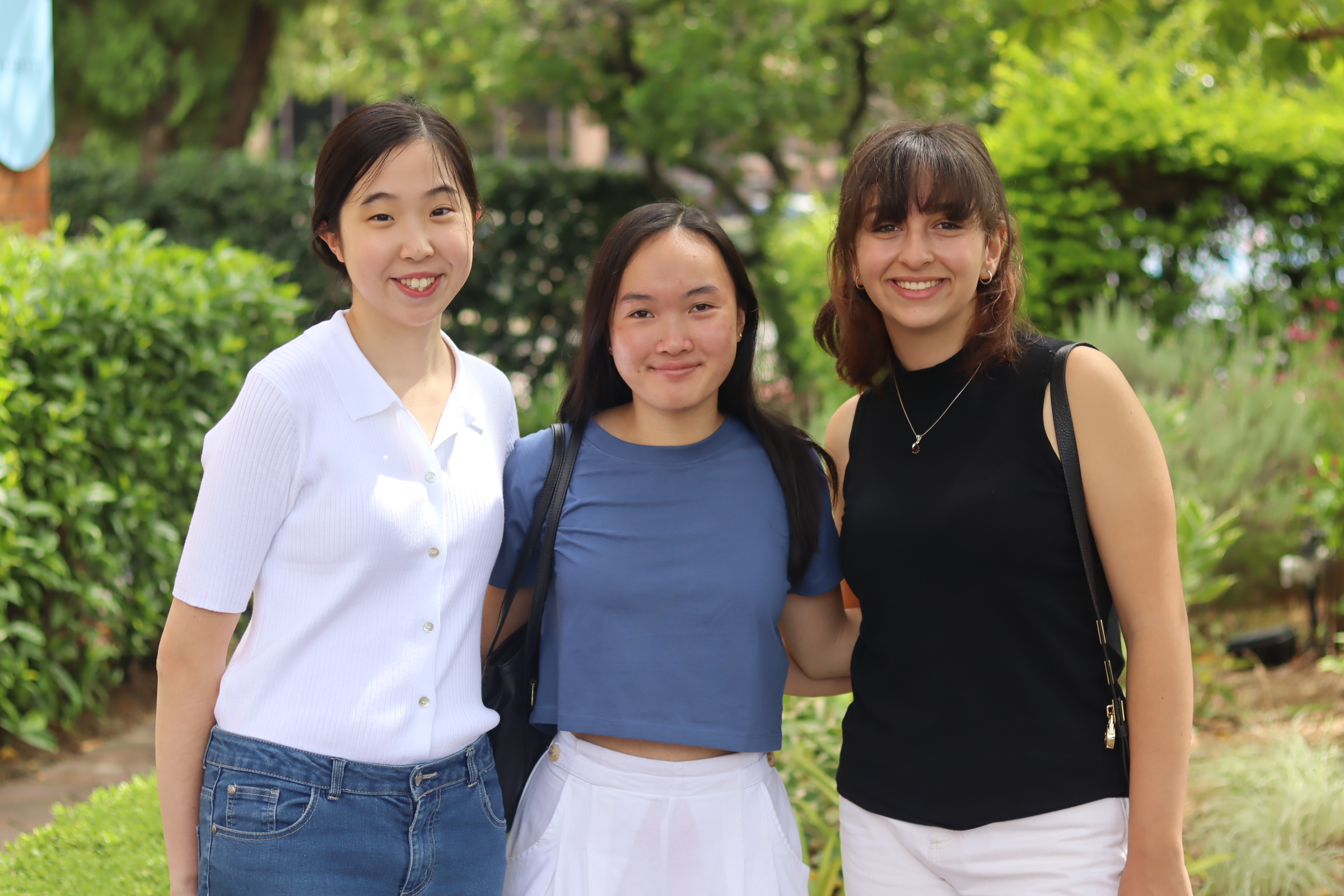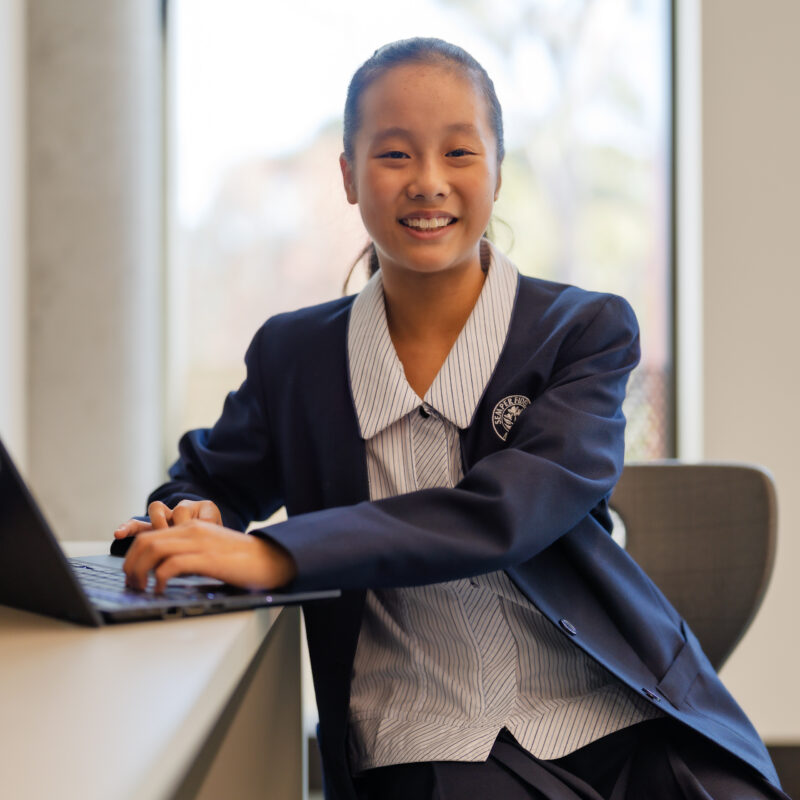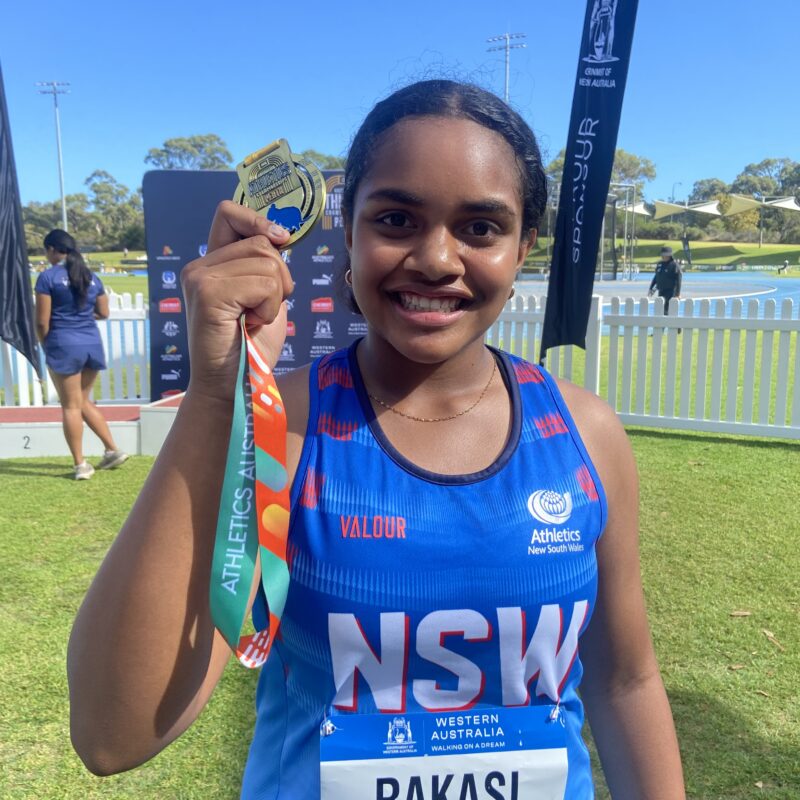This week, Meriden staff and students had the pleasure of welcoming back three of our high-achieving students from 2021, who graciously agreed to return to share a little of their hard-earned wisdom in how to approach the HSC and study.
Rena Tang shared her thoughts on the importance of balance, carefully planning for study time, finding a balance with cocurricular activities and measuring progress against a goal.
At the start of each term, Rena wrote all exam and assessment deadlines in the Meriden Planner, then made a list of all tasks (research, study, revision) associated with each deadline and carefully scheduled time to complete each of these tasks in her diary.
“Consistency in your studies is very important. Consistent practice and study made me feel less stressed, and helped me to retain information better, which ensured I was less likely to procrastinate because I was doing my tasks little by little each day,” said Rena.
Balancing a study schedule with other cocurricular activities was especially necessary in Year 12 said Rena, as maintaining cocurricular activities was a way to unwind during the school week. Rena also chose to sit with friends at recess and lunch instead of studying alone, and rewarded her hard work with Friday night TV shows in order to stay motivated throughout the year.
Rena also emphasised the need for physical exercise and sleep. “My advice is to make your sleep schedule a priority too, you should care for your body as your body is you, and your body is working for you.”
Rena reminded students to pace themselves carefully.
“Your focus should be taking one day at a time. This is how I got rid of unnecessary anxiety and focused on what I could do in the moment,” said Rena.
Patrice Aravanis shared the importance of establishing personal goals, both big and small. Patrice wrote out ‘micro-goals’ in her Planner to keep as a reference to what she wanted out of her year. This approach worked throughout high school.
However, Patrice warned that a complete focus on achieving goals without also caring for health – mental, physical and social – had consequences. For Patrice, participating in Cadets, the Duke of Edinburgh’s Award, Theatre Sports as well as sport and spending time outside were important ways for her to manage stress. It also provided opportunity to talk to her peers and teachers, and ask for help when she needed it.
“To get the most out of your education here, being fully present in class and working with your teachers to understand where you stand, and seeking out advice is where major academic progress can be made,” said Patrice.
“Meriden can be a place of pure learning, of exploring your passions, making friendships, trying new things and being part of a community,” Patrice reminded the girls.
Emily Seeto marvelled at how far she’d come in her years at Meriden, remembering being in the shoes of the younger students.
“When you’re young you’re constantly looking to the future and asking what are you going to do. Instead we should all ask ourselves – who am I going to be? I think the most important thing is to connect what you do to what you’re interested in. This is how to avoid making whatever you’re doing into a chore, running the risk of turning your whole life into a chore.”
Emily shared with the audience, “Perfectionism is a mask we don when we’re afraid of failure. Don’t strive to be the best in the room, strive to be the most engaged. Clarity comes from your engagement with what is happening around you – not from how well you think or how knowledgeable you are. I think that starting to become a better person comes from being present and learning to the best of your ability.”
All the returning high-achievers demonstrated wisdom and perspective, as well as a commitment to striving for excellence. Their example was an inspiration to staff and students alike and we look forward to seeing the class of 2022 taking on this advice.



